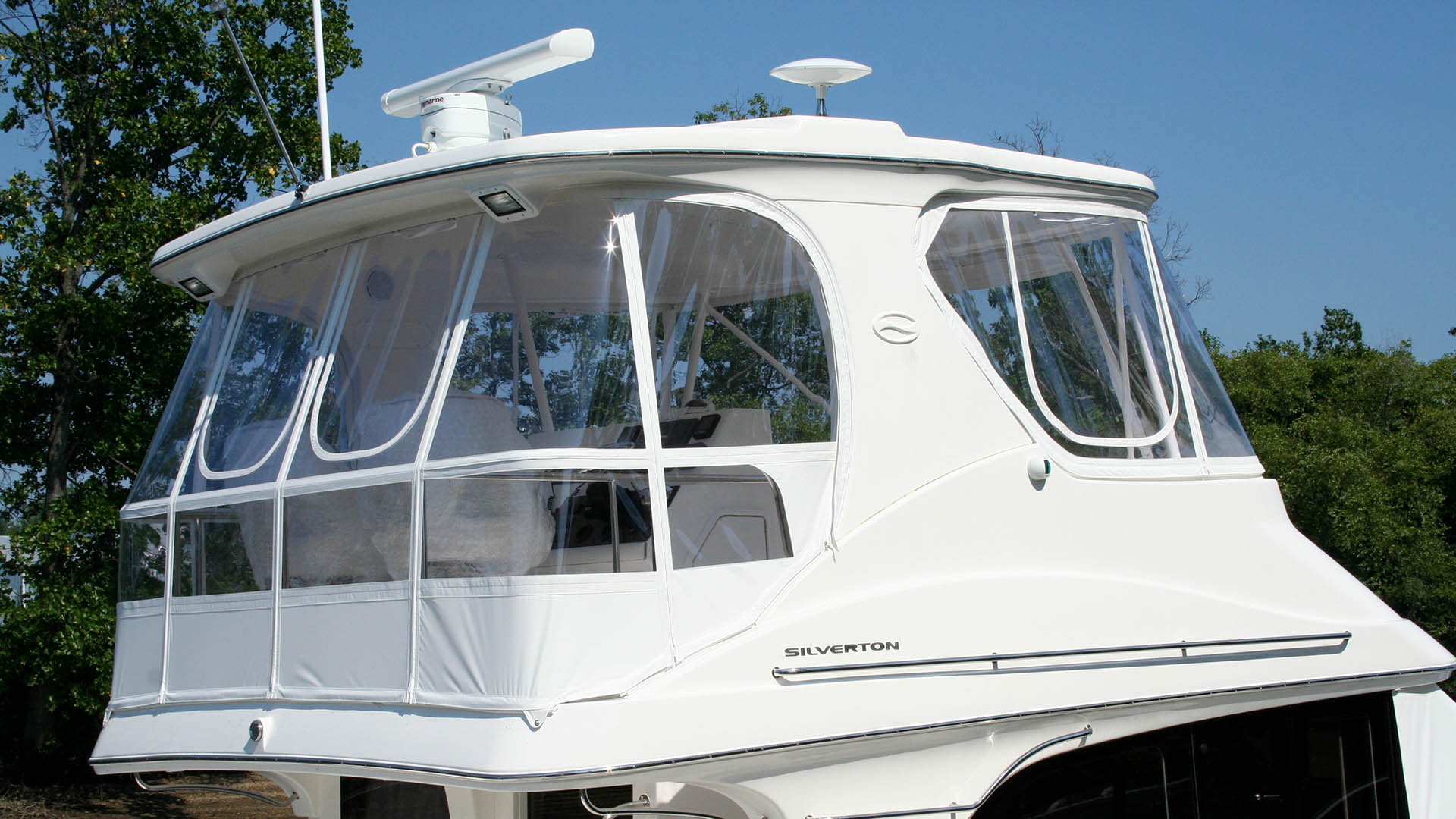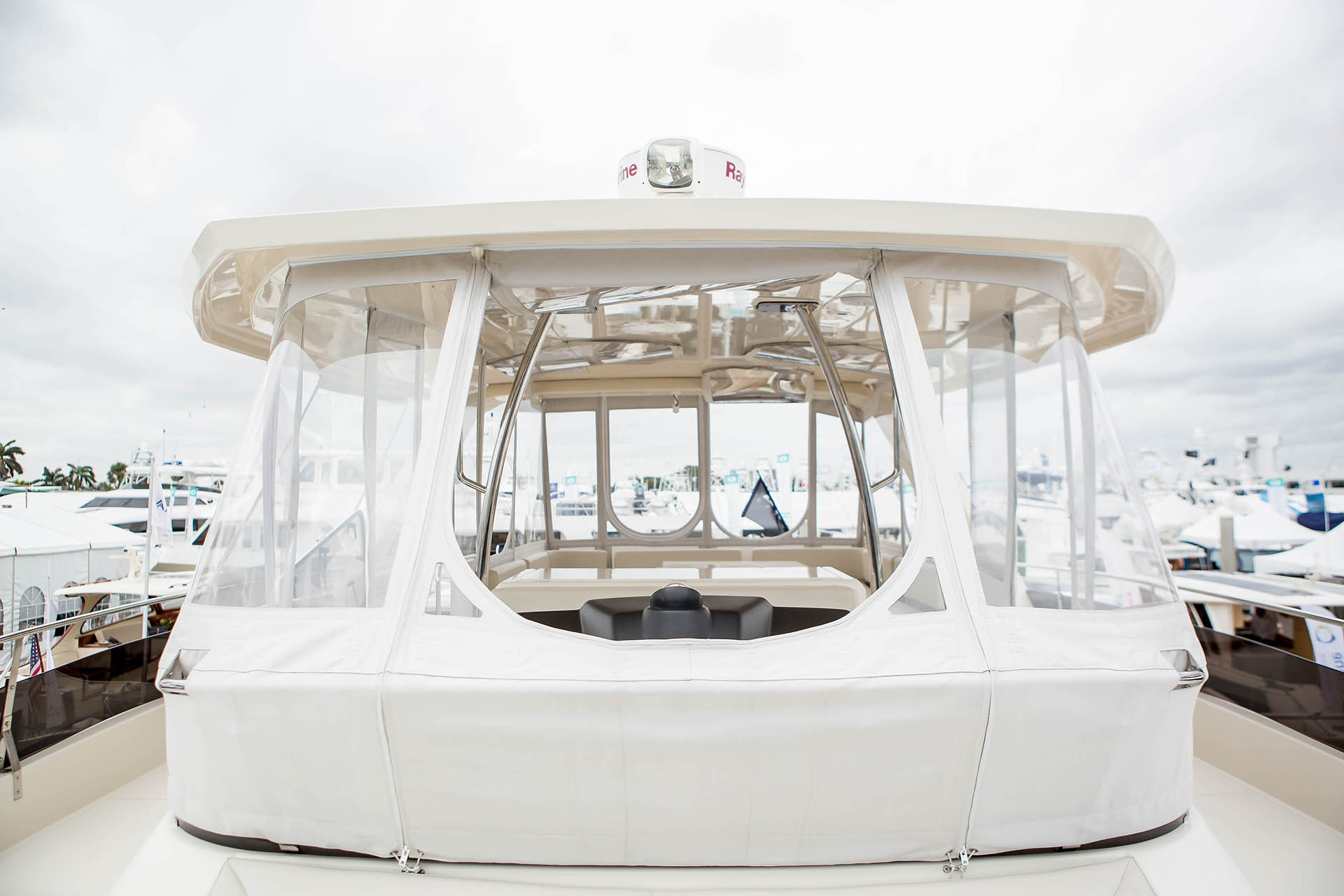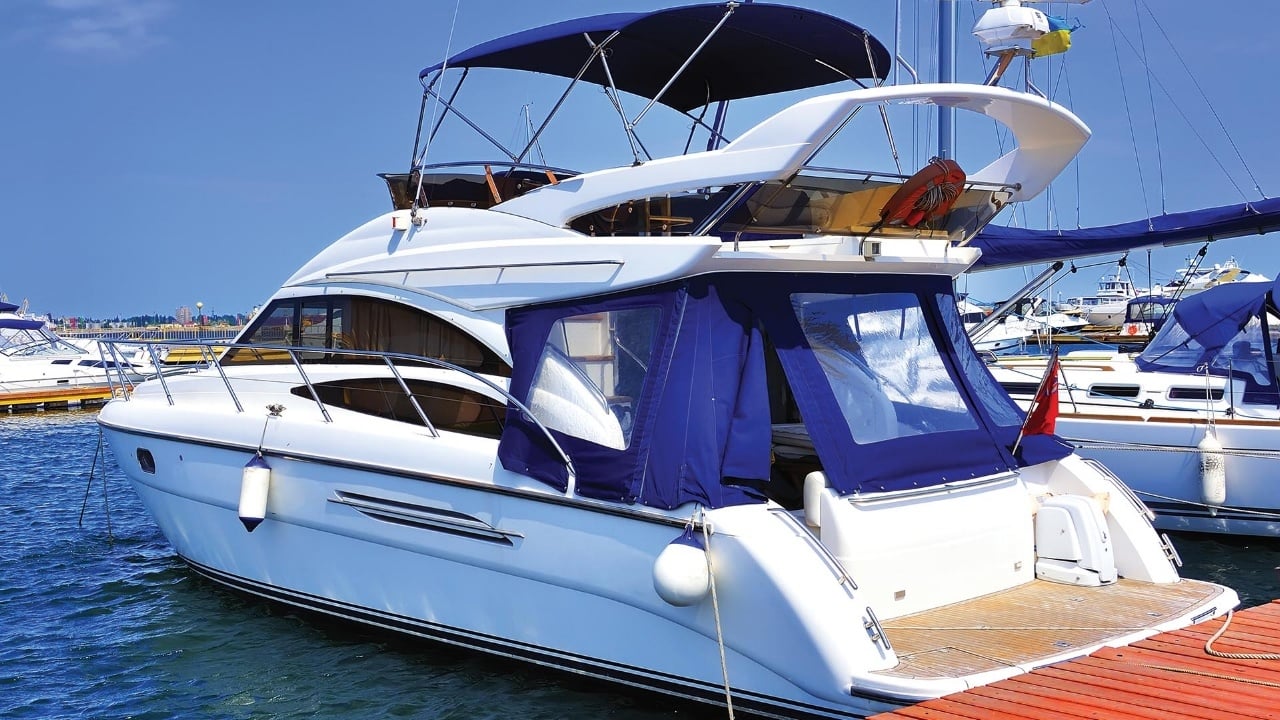Boat enclosures come in a variety of options and prices. As budget-minded consumers, we tend to look for the most affordable product. But when it comes to your boat, paying a little extra upfront will save you in the long run, especially when it comes to enclosures.
In the marine industry, there are two general types of boat enclosures: soft and rigid. What’s the difference between these two materials? And why should you care? Let’s break it down:
- Soft Enclosures: These are typically made of a malleable textile like Strataglass’ clear vinyl.
- Rigid Enclosures: These are sturdy but not as malleable, so bending and curving the material is difficult. Polycarbonate and acrylic are typically used in rigid enclosure construction. At times, these can get quite expensive.
So, how do you know which material is right for you and your project? Well, the answer depends on what you’re looking for. Here’s why:
Polycarbonate is a clear plastic and it is semi-rigid, meaning it’s very inflexible. Visibility is clear with this material, and it can also be coated with scratch and UV resistant chemicals. But polycarbonate isn’t soft like clear vinyl, so it can’t be rolled up and must be unzipped to remove it from the frame. If the material is damaged, scratched, or warped, replacement is typically costly and because it is rigid you will likely have to replace the whole thing. The material also dents when struck by hard objects, and water spots are difficult to remove. Polycarbonate is also more susceptible to scratching.
With a soft material like Strataglass, you can roll it, coat it, maintain it, and replace it in a cost effective, easy process. Strataglass boat enclosures are made from a vinyl and polyester composite and come with a warranty, special scratch resistant coatings, and hardy resistance to overspray, runoff, and pollutants. The material is flexible and scratches can be repaired, thus, you save on replacement costs. Strataglass is also less expensive than rigid enclosures which means you get more bang for your buck.
Strataglass uses VueShield™, a highly engineered scratch resistant coating technology that enhances clear visibility. This proprietary coating makes the product resistant to minor scratches and swirl marks that are common to clear vinyl products in the harsh marine environment. Strataglass® VueShield™ offers additional UV resistance to protect the boat, passengers and furnishings from the sun’s harmful rays. VueShield™ seals and protects Strataglass, maintaining its optimum durability, flexibility and extending the life of the product. Strataglass is engineered with a proprietary anti-glare additive that enhances clarity, reduces sun glare and improves low light visibility. Strataglass’ has a marine life of 2-5 years when properly cleaned and maintained using Strataglass Protective Cleaner and Strataglass Protective Polish by IMAR, as directed by the manufacturer.
As you can see, choosing Strataglass over a rigid material like polycarbonate can save you time, money, and headaches. The extra features and the warranty make it the right choice for your next boat enclosure project. The Strataglass warranty, reputation, and product longevity and excellence are industry renowned by boat owners and fabricators.
More information about Strataglass and its marine enclosures.





0 Comments